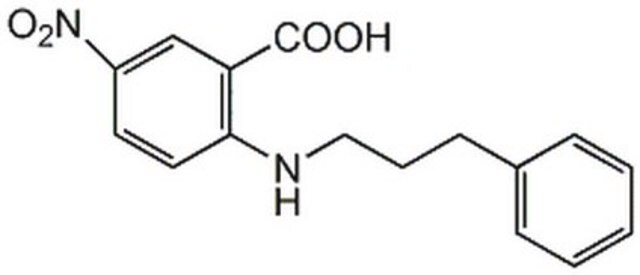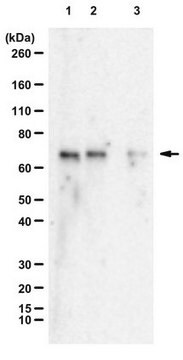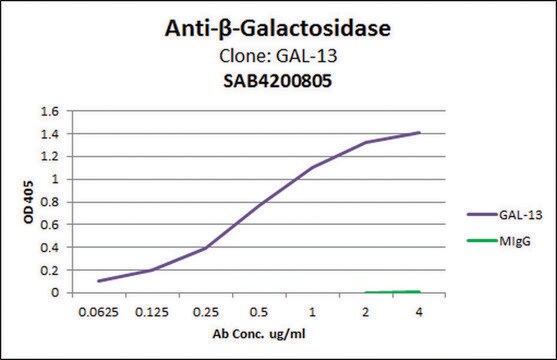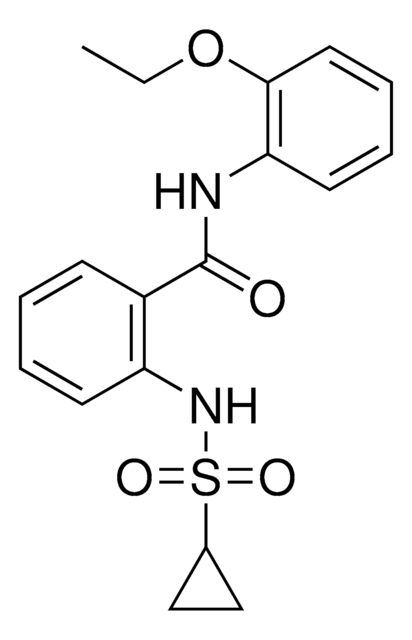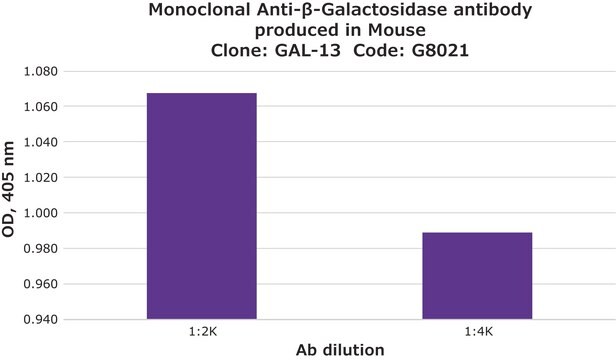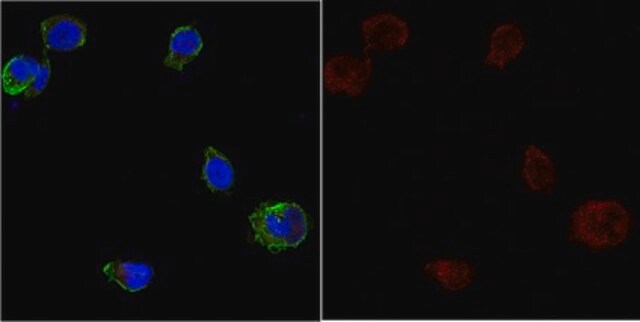ABN492
Anti-EPAC2 Antibody
from rabbit, purified by affinity chromatography
Sinonimo/i:
Rap guanine nuclear exchange factor 4, RAPGEF4, cAMPGEF-II, CGEF2, Exchange factor directly activated by cAMP 2
About This Item
Prodotti consigliati
Origine biologica
rabbit
Livello qualitativo
Forma dell’anticorpo
affinity isolated antibody
Tipo di anticorpo
primary antibodies
Clone
polyclonal
Purificato mediante
affinity chromatography
Reattività contro le specie
mouse, rat
Reattività contro le specie (prevista in base all’omologia)
human (immunogen homology)
tecniche
immunohistochemistry: suitable
western blot: suitable
N° accesso UniProt
Condizioni di spedizione
wet ice
modifica post-traduzionali bersaglio
unmodified
Informazioni sul gene
human ... RAPGEF4(11069)
Descrizione generale
Immunogeno
Applicazioni
Neuroscience
Developmental Neuroscience
Qualità
Western Blotting/Peptide Inhibition Assay Analysis: 1 µg/mL of this antibody detected EPAC2 in 15 µg of rat liver tissue lysate.
Descrizione del bersaglio
Stato fisico
Stoccaggio e stabilità
Risultati analitici
Rat liver tissue lysate
Altre note
Esclusione di responsabilità
Non trovi il prodotto giusto?
Prova il nostro Motore di ricerca dei prodotti.
Codice della classe di stoccaggio
10 - Combustible liquids
Classe di pericolosità dell'acqua (WGK)
WGK 2
Punto d’infiammabilità (°F)
Not applicable
Punto d’infiammabilità (°C)
Not applicable
Certificati d'analisi (COA)
Cerca il Certificati d'analisi (COA) digitando il numero di lotto/batch corrispondente. I numeri di lotto o di batch sono stampati sull'etichetta dei prodotti dopo la parola ‘Lotto’ o ‘Batch’.
Possiedi già questo prodotto?
I documenti relativi ai prodotti acquistati recentemente sono disponibili nell’Archivio dei documenti.
Il team dei nostri ricercatori vanta grande esperienza in tutte le aree della ricerca quali Life Science, scienza dei materiali, sintesi chimica, cromatografia, discipline analitiche, ecc..
Contatta l'Assistenza Tecnica.